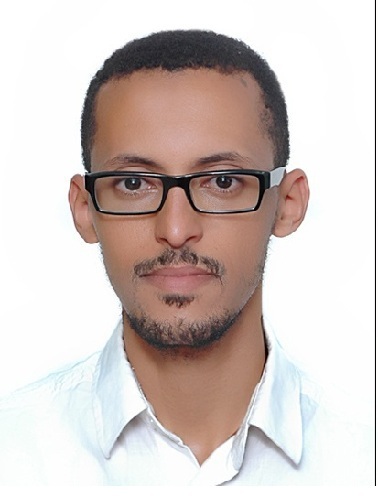
Rachid Oulahal
(University of Toulouse Jean Jaures)
Our research in is in the field of intercultural psychology with a specific focus on the interculturation process (Clanet, 1990; Denoux, 1994) and its relation to cognitive processes. In this article, we intend to address the issue of memory disorders identification with elderly migrants. In France, along with other European countries, several studies stated a surprise related to individuals from minority groups, who migrated during the 60s and 70s, and who were not really expected to grow old in their host country (Moukouta, 2010; Moukouta & al., 2017; Samaoli, 2000, 2007). This reality is now a society issue and has to be addressed by the public health policies.
Our research aims at proposing guidance with respect to the cognitive impairments evaluation for elderly from minority groups who may be illiterate or may not speak their host country’s language. Indeed, assessing elderly migrants’ cognitive processes requires adaptation that goes beyond the only translation of an existing tests.
We made a qualitative field research to compare cultural biases for 2 memory assessment tools: the MMSE (recommended by the French Health Authority for elderly cognitive assessment) translated in the patient native language (Derouesné & al., 1999; Folstein et al., 1975; Mokri, 2013) and the TMA-93 (Associative Memory Test) that was specially designed for illiterate individuals (Maillet & al., 2017). The patients were met during their appointments at a health center in a separate office and in a quiet environment. We asked them to indicate languages they used to speak during their childhood as well as those they would speak today. We also asked them to tell us about memory troubles they may have experienced. Lastly, the MMSE and TMA-93 tests were administered to the patients.
The results from this qualitative research suggest that the TMA-93 test is more adapted than the MMSE for cognitive assessment of elderly who don’t speak fluently their host country’s language. For cognitive assessments, the tests aim at measuring individuals’ capabilities such as memory, attention… Yet, «based on the cultural group, mental faculties are organized according to the need of everyday life and values conveyed by the social group. Intelligence cannot be considered as an objective notion and must be questioned as a socially built object, full with codes of the culture in which it was developed» (Bossuroy, 2012, p. 57). With respect to the MMSE test, many conceptual and item biases were highlighted and attest that mental capabilities will depend on the social and cultural environment in which our patients will have evolved. Thus, in the context of a cognitive assessment, these factors should be considered by psychologists when analyzing the results.
Our research enables us to address the necessity to adapt cognitive evaluation tools and psychologists’ practices to the intercultural situation where the patient, his carers and professionals are involved. Moreover, our results showed that the cognitive evaluation could not go without a knowledge of these elderly migrants’ life story and migration experience (Oulahal, Denoux & Teyssier, 2018). Migration may be related to several reasons and purposes and lived experiences may be integrated into the general life story with either remembering or forgetting processes. Memory losses can therefore be analyzed at several levels and the specific case of elderly migrants shows to which extent memory losses can be wrongly identified as cognitive impairments corelated to the ageing process.
A main practical issue is the development of an intercultural expertise within institutions to properly handle these situations. We would recommend the creation of mobile intercultural cognitive assessment teams (Oulahal & al., 2018) that could evolve within structures to address specific situations in a given geographical area. The main advantage would be that elderly migrants remain within general health structures rather than being reoriented to specialized structures, which could enforce the current stigma these elderly migrants might find themselves in. Alternatively, several recent studies have investigated the possibility to rely on online cognitive assessment and training protocols (de Jager, Budge, & Clarke, 2003; Gigler, Blomeke, Shatil, Weintraub, & Reber, 2013; Mackin & al., 2018) that could also benefit elderly migrants within general healthcare institutions or other elderly individuals located in geographical areas (or countries) where proper cognitive assessment structures are lacking. This has yet to be evaluated for elderly migrants considering their singularity when it comes to cognitive impairments.
References
Bossuroy, M. (2012). Le bilan psychologique en situation transculturelle – Contribution à une amélioration des pratiques (Thèse de doctorat, Université Paris 5). https://www.theses.fr/170011631
Clanet C. (1990). L’interculturel. Introduction aux approches interculturelles en Éducation et en Sciences Humaines, Toulouse: Presses universitaires du Mirail
de Jager, C.A., Budge, M.M. and Clarke, R. (2003). Utility of TICS-M for the assessment of cognitive function in older adults. International Journal of Geriatric Psychiatry 18(4): 318‑324. https://doi.org/10.1002/gps.830
Denoux, P. (1994). “Pour une nouvelle définition de l’interculturation.” In J. Blomart et B. Krewer (Ed.). Perspectives de l’interculturel 67‑81. Paris: L’Harmattan
Derouesné, C., Poitreneau, J., Hugonot, L., Kalafat, M., Dubois, B. and Laurent, B. (1999). “Le Mental-State Examination (MMSE): un outil pratique pour l’évaluation de l’état cognitif des patients par le clinicien. Version française consensuelle.” La Presse Médicale 28: 1141-1148
Folstein M.F., Folstein, S.E., McHugh, P.R. (1975). “Mini-mental state. A practical method for grading the cognitive state of patients for the clinician.” Journal of Psychiatric Research, 12, 189–198.
Gigler, K.L., Blomeke, K., Shatil, E., Weintraub, S., & Reber, P. J. (2013). Preliminary evidence for the feasibility of at-home online cognitive training with older adults. Gerontechnology 12(1). https://doi.org/10.4017/gt.2013.12.1.007.00
Mackin, R.S., Insel, P.S., Truran, D., Finley, S., Flenniken, D., Nosheny, R., … Weiner, M.W. (2018). “Unsupervised online neuropsychological test performance for individuals with mild cognitive impairment and dementia: Results from the Brain Health Registry.” Alzheimer’s & Dementia: Diagnosis, Assessment & Disease Monitoring 10: 573‑582. https://doi.org/10.1016/j.dadm.2018.05.005
Maillet, D., Narme, P., Amieva, H., Matharan, F., Bailon, O., Le Clésiau, H., and Belin, C. (2017). “The TMA-93 : A New Memory Test for Alzheimer’s Disease in Illiterate and Less Educated People.” American Journal of Alzheimer’s Disease and Other Dementias 32(8): 461‑467. https://doi.org/10.1177/1533317517722630
Mokri, H. (2013). Problématique de l’évaluation neuropsychologique du sujet âgé de bas niveau d’études (Thèse de doctorat, Université Bordeaux 2). https://www.theses.fr/178041505
Moukouta, C.S., Kokou-Kpolou K., Mbassa Menick, D., Deligne, H., Dailly, M., and Soltani, F. (2017). “Difficultés dans la prise en charge des sujets âgés migrants.” Gériatrie et Psychologie Neuropsychiatrie du Vieillissement 15(4): 409-416. doi:10.1684/pnv.2017.0701
Oulahal, R., Denoux, P., and Teyssier, J. (2018). “Place de la mémoire et de la langue dans l’histoire de vie des personnes âgées en situation interculturelle.” NPG Neurologie – Psychiatrie – Gériatrie 18(103): 13‑17. https://doi.org/10.1016/j.npg.2017.09.002
Oulahal, R., Denoux, P., Teyssier, J., and Maillet, D. (2018). “Le couteau, la pomme et le mouton… Entre neuropsychologie et psychologie interculturelle, quelle perspective pour l’évaluation cognitive de la mémoire épisodique des sujets âgés non francophones?” NPG Neurologie – Psychiatrie – Gériatrie 18(105): 162‑169. https://doi.org/10.1016/j.npg.2018.03.003
Samaoli, O. (2000). Vieillesse démence et immigration – Pour une prise en charge adaptée des personnes âgées migrantes en France, au Danemark et au Royaume-Uni. Paris: Harmattan.
Samaoli, O. (2007). Retraite et vieillesse des immigrés en France. Paris: L’Harmattan
Rachid Oulahal is an intercultural psychologist and holds a PhD in psychology from the University of Toulouse Jean Jaures, in France. His thesis, entitled Interculturation, Development and Cognition : the intercultural autobiographical memory – a cross-cultural comparison of identity and memory constructions between France and Singapore, was approved on October 16th, 2019. His field of research is focused on the intercultural psychology epistemology and its relations to cognitive processes within a lifespan perspective. Rachid Oulahal’s research is done within the Pathological and Intercultural Clinics Laboratory (LCPI, University Jean Jaures, Toulouse, France).

![[GLOBAL CREMIT] The Issue of Cognitive Assessment with Elderly Migrants. Considering Life Story and Memories.](https://www.cremit.it/wp-content/uploads/2020/01/800px-Gnarly_Old_Tree_-_South_Australia.jpg)






